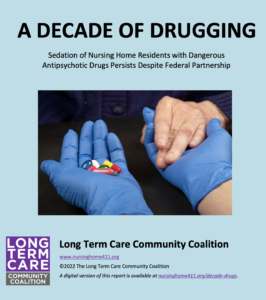Elder Abuse By Drugging Patients: Studies Show A Huge Problem
Recent studies show that overmedication in nursing homes continues to be a problem. Too often, understaffed homes turn to drugs rather than care.
Elder neglect in Sacramento nursing homes occurs when understaffed facilities unnecessarily rely on the use of drugs to subdue residents. Often, residents who have never been on any drugs are suddenly on one or more psychotropic medications to address problems the nursing home suddenly sees. Without trying other less dangerous methods this is not appropriate. If a nursing home does not monitor the effects and behaviors of a resident following the administration of these drugs, that is neglectful. Warehousing unresponsive residents who have been drugged into compliance is a problem in Sacramento nursing homes and assisted living facilities.
Moreover, An understaffed nursing home will neglect residents dealing with hard behaviors, like sundowning, by unnecessarily drugging a resident. Sacramento nursing homes are often understaffed at night to deal with sundowning residents who are up and need attention. It is elder abuse to use drugs to get these residents to stop the behaviors without first trying interventions that address their underlying conditions. This is how overmedication in nursing homes increases.
Finally, the effects of drugging or overmedicating residents at Sacramento nursing homes can be devastating leading to failure to thrive and death. Elder neglect occurs when a drugged patient at a nursing home stops eating and drinking as a result of being given unnecessary drugs by the care home. Elder abuse lawsuits, including ones we have prosecute are appropriate where the nursing home commits abuse by failing to address the effects of overmedication of a resident. The problem with over medication and drugging in nursing homes, is well documented – contact us if you believe your loved one was overmedicated. Read more here:
What the literature says about overmedication in nursing homes.
Over ten years have passed since CMS launched a ballyhooed Partnership to Improve Dementia Care. The central goal of the Partnership was to reduce the misuse of antipsychotics and other drugs used on residents as chemical restraints.
After a slow and modest reduction in antipsychotic use during its first few years, the Partnership has withered from inattention and now chemical restraint use is at horrific levels. A recent OIG study found that eighty percent (!) of long-stay nursing home residents are drugged with at least one psychotropic.



Comments are closed.